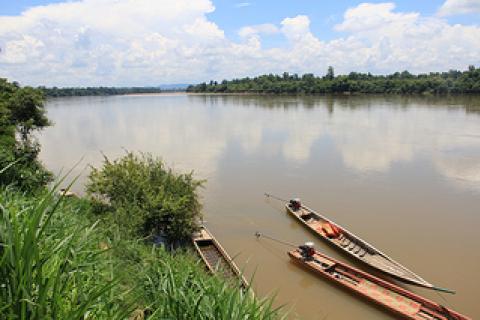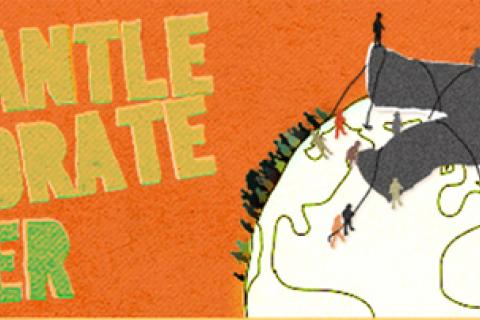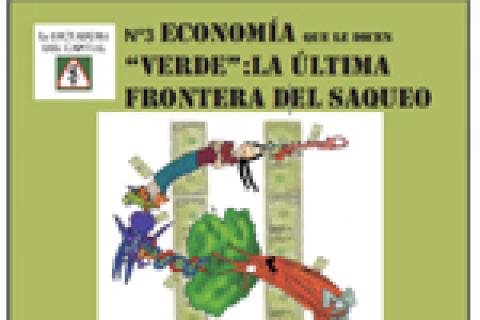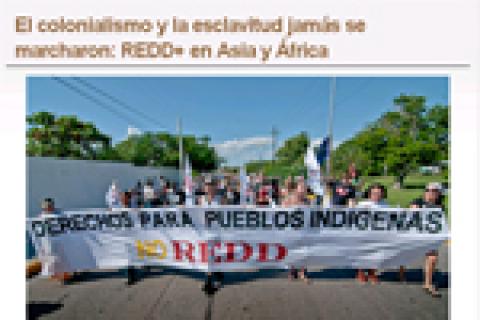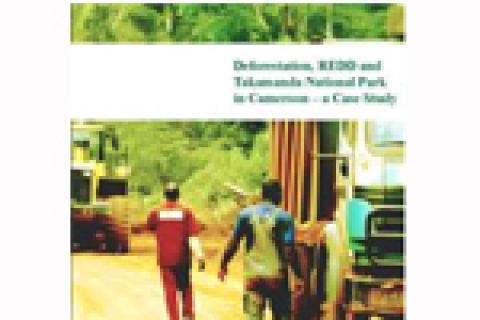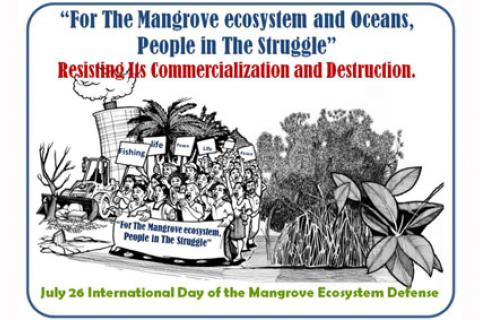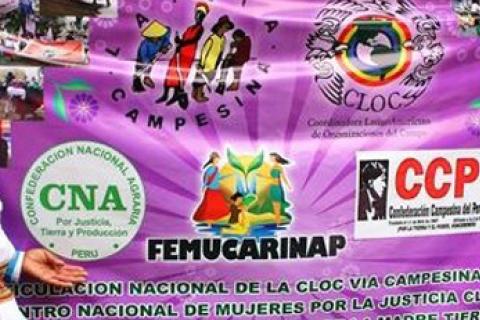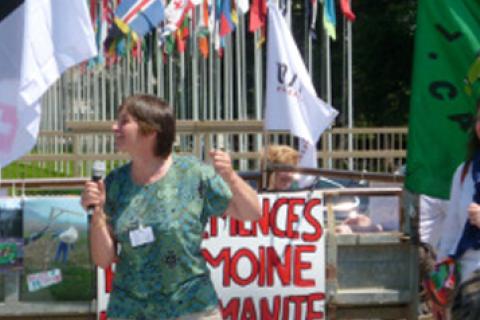By selecting the ‘Mekong River Basin’ from the left panel where it says 2River Basins in Focus’, detailed information will appear about the area.
Other information
For Immediate Release, 20 August 2014
Regarding the week of mobilization to stop corporate crimes and impunity, social movements demand access to justice for those affected by human rights violations and ecological crimes committed by corporations!
See declaration in English: www.stopcorporateimpunity.org/?p=5964
REDD is one of the most controversial issues in the climate change debate. The basic concept is simple: governments, companies or forest owners in the global South should be rewarded for keeping their forests standing instead of cutting them down. The devil, as always, is in the details. REDD-Monitor looks into some of those details.
http://www.redd-monitor.org/
By OtrosMundos Chiapas.
The so-called “Green Economy” is a new area of business. It is called “Green” not because it is good for the environment, but because its commodity is nature. We are seeing a stage of advanced Capitalism in which the water, soil, biodiversity, air, subsoil, the components of nature and of life and even the landscape are being converted into commodities.
By SERVINDI .
While the world’s governments debate the catastrophic consequences of global warming, a trading structure of global scope threatens to establish a new form of subjugation in Asia and Africa, by appropriating one of the main agents of life on Earth: its forests. The lead actor in this threat is REDD, which is sponsored by the United Nations and masquerades as one of the solutions to global warming.
By FPP.
While focusing in particular on the German financing of rainforest protection in Cameroon, this report also covers the broader issue of how Cameroon’s forest policies are shaped by the REDD process. It takes a case study approach, examining the way such forest protection policies impact on local communities by focusing in on the specific example of those communities whose land has been overlaid by the Takamanda National Park
Mangrove peoples and communities have a close bond with mangroves, fishing and the seas. Mangroves and the seas are wholly interconnected natural elements, as is the life of marine coastal peoples. That is why this July 26 the slogan for the celebration of International Day for the Defense of Mangrove Ecosystems is: Mangroves and the Sea. People’s Struggles to Resist Commodification and Destruction.
In the global level, we energetically reject “false solutions” to global warming. Climate negotiations have become a great marketplace, creating tools and mechanisms to clean up the image of the most polluting countries and companies, such as the “Clean Development Mechanism” (CDM) or REDD (Reducing Emissions from Deforestation and Forest Degradation). These tools allow the capitalist system to continue to consume the natural resources that belong in common to all humanity.
On June 27th, the UN Human Rights Council Assembly passed a resolution authorizing the continuation of the process of drafting an international declaration on the rights of peasants and other people working in rural areas. The declaration project originated with the Via Campesina, and it is the fruit of ten years of work on the part of this international movement which is comprised of more than 164 organizations in 73 countries.
By the World Rainforest Movement. This booklet produced by WRM was published over a year ago. It is being re-launched with a new introduction which explains in an accessible language what REDD means. Download it here
